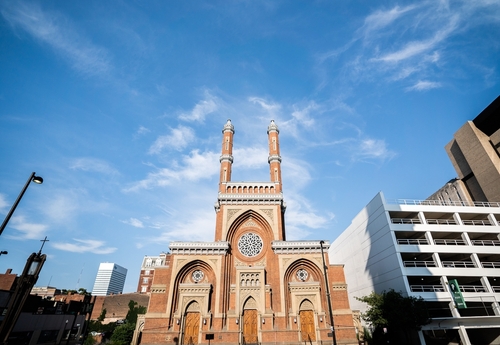
The Cybersecurity and Infrastructure Security Agency (CISA), a part of the U.S. Department of Homeland Security (DHS), this week released a new set of physical security performance goals for faith-based organizations.
Partially in response to the ongoing conflict between Israel and Palestinians, the resources contained within these goals were meant to be a cost-effective means to reduce risk to communities without sacrificing accessibility. They were modeled after Cybersecurity Performance Goals likewise released by CISA in October, a voluntary set of practices for businesses and critical infrastructure owners to utilize for protection against cyber threats.
“In this continued heightened threat environment, the Department of Homeland Security is committed to protecting every American’s right to live, express, and worship their faith freely and in safety,” Secretary of Homeland Security Alejandro Mayorkas said. “The physical security performance goals we are releasing today provide churches, synagogues, mosques, and other faith-based institutions with cost-effective, accessible, and readily implementable strategies to enhance their security and reduce the risk to their communities. I strongly urge all faith-based institutions to take advantage of this new resource and incorporate the security practices it outlines.”
According to DHS assessments, houses of worship represent attractive targets for malicious actors due to their roles as central points for faith-based services and gatherings. Complicating matters is that every facility is different. With that in mind, the new goals list set out to create a baseline set of security practices, allowing organizations to instead create their own actionable plans to address specific needs rather than be subjected to a one-size fits all mindset.
“While the threat environment continues to be challenging across all faiths, houses of worship and other faith-based organizations and people are often targets. Preparedness is key to mitigating risk,” Mayya Saab, executive director of the Faith-Based Information Sharing and Analysis Organization and DHS Faith-Based Security Advisory Council Member, said. “The Physical Security Performance Goals for Faith-Based Communities resource provides a visual guide to a goal setting activity that can help houses of worship and faith-based organizations prioritize security goals based on understanding their unique risk. The guide will be especially helpful to less resourced houses of worship.”
Hate crimes in particular have increased over the course of the war. The American Jewish advocacy group known as the Anti-Defamation League documented 832 antisemitic incidents between Oct. 7 – the day Hamas broke through border fences along the Gaza Strip, overcame air defenses and attacked Israel – and Nov. 7. Similarly, the Council on American-Islamic Relations (CAIR), a civil rights organization for Muslims in the U.S., reported more than 1,200 complaints of bias and requests for help over a similar period.




